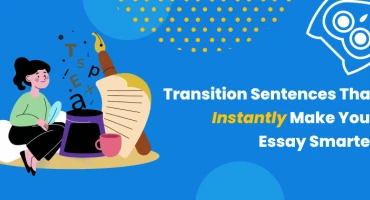What Is Redundancy in Writing?
Redundancy in writing is when you use words and phrases you don’t need. They’re unnecessary because:
- They don’t enhance your text.
- They add unnecessary length to the piece of work.
- Readers can find them annoying.
When you write any kind of text, it’s best to avoid redundancy in a sentence wherever possible. By removing redundancies from your written work, you can improve its quality and readability. If you were to use an essay service, the writers would remove redundancies for you. But it’s still worth knowing what they are.
Common Redundancies in Writing
People use all sorts of redundant phrases and unnecessary words, both in everyday speech and in writing.
This article looks at how removing superfluous words, and unnecessary phrases can make your writing better. Even if they’re not grammatically wrong, it’s better to remove them to improve the quality of your work.
5 Types of Redundancies
There are 5 main types of redundancies that you may come across in writing.
In a typical paper or essay, there are many instances of redundancies. Take our advice and avoid redundancies in your written work whenever you can.
Below are descriptions of the main redundancy types, along with at least 1 example of each one.
- Pleonasm. A pleonasm is where you use more words than necessary to express an idea or make a point. For instance, the phrase ‘he kicked it with his foot’ is a pleonasm. This is because the words ‘with his foot’ aren’t necessary. The act of kicking involves using your feet. Therefore, you don’t need extra words that mention them.
- Plague Words. These are words or phrases that don’t add anything meaningful to a sentence. You should remove them or replace them with something shorter. The words ‘essentially’ and ‘basically’ are some good examples.
- Cliches and Platitudes. A cliche is a phrase that lots of other people use, such as ‘a blast from the past’. A platitude is a phrase that’s easy to understand but doesn’t add much to the writing. ‘Life is a mystery’ would count as a platitude.
- Intensifiers. An intensifier is an adverb that strengthens the meaning of a phrase, often unnecessarily. For instance, ‘absolutely’ and ‘extremely’ are some common intensifiers.
- Redundant Abbreviations. This is where you use an abbreviation but add one or more words that are already part of it. A classic example would be saying ‘PIN number’. This is a redundant abbreviation because ‘PIN’ stands for ‘personal identification number’. If you say ‘PIN number’, you’re effectively saying ‘number’ twice.

How to Identify Redundancy in Your Own Writing
The best way to spot redundancy in your writing is to read your text slowly.
Consider every word. If there’s one that doesn’t contribute to its sentence, think about removing it. Correct yourself wherever necessary, and don’t fall into the habit of repeating mistakes. The key to writing good essay papers is being able to look at your work objectively.
Below are some redundancy examples you’ll come across in writing:
-
A free gift – by definition, a gift doesn’t cost anything, so the word ‘free’ is pointless.
-
Actual fact – the word ‘actual’ doesn’t add anything here.
-
Plan ahead – the word ‘ahead’ is redundant because ‘plan’ means making preparations for a future event.
-
Future plans – similar to the above example, ‘future’ is redundant since its meaning is already in the word ‘plans’.
-
Added bonuses – a bonus is something extra you receive, so ‘added’ is pointless.
-
Past experience – experience is something you gained in the past. Having the word ‘past’ doesn’t add anything.
-
Close proximity – ‘proximity’ means ‘closeness’, so having ‘close’ in front of it is a redundancy.
-
Advance forward – the concept of ‘forward’ is already in the word ‘advance’.
-
Ask a question – simply using ‘ask’ would work instead.
-
Different kinds – the word ‘different’ isn’t necessary.
-
False pretense – a pretense is false by definition.
-
Few in number – ‘few’ has the same meaning as ‘few in number’.
-
The place where – either say ‘the place X…’ or ‘where X…’.
-
Consensus of opinion – the word ‘consensus’ means ‘collective opinion’. Putting ‘of opinion’ after it is a redundancy.
-
Repeat again – ‘again’ is a redundancy, as repeat means ‘to do something again’.
-
At the present time – this is a redundant phrase because the word ‘now’ is enough.
-
Due to the fact that – this is a common term that means the same as ‘because’.
-
Combine together – ‘combine’ covers the concept of ‘together’.
-
Advance warning – when you warn someone, you’re giving them notice in advance. The word ‘advance’ doesn’t add anything.
-
Final result – a result is already final, so avoid using ‘final’ here.
-
A new invention – an invention is new by definition, so ‘new’ is a redundant word.
-
Free access – ‘free’ doesn’t add anything to the concept of ‘access’.
-
Outward appearance – your appearance is already outward.
-
Whisper softly – ‘softly’ just repeats part of the meaning of ‘whisper’.
-
Was of the opinion that – you can shorten this to ‘believed’ or ‘thought’.
-
We also did that, too – in this example, the words ‘also’ and ‘too’ mean the same. Only one of them is necessary.
-
6:00 a.m. in the morning – ‘a.m.’ tells the reader the time is in the morning.
-
ATM machine – this is unnecessary repetition since it’s the same as saying ‘automated teller machine machine’.
-
Literally – many people use it for emphasis when it’s not necessary.
-
True facts – a fact is something true, so the word ‘true’ is redundant.
This list isn’t exhaustive. There are many more examples of redundancies in the English language. You should now have an idea of what they are and how to spot them.
Effects of Redundancies on Writing Style and Clarity
You might be thinking, ‘Is it just me, or are redundancies not that important?’ Understanding redundant writing is important because having unnecessary words can reduce the quality of your writing.
When you let a reader look over your work, they should read it with ease. They should understand the context of your writing and the message you’re trying to send.
Redundancies lower readability. Having lots of redundant phrases and words in your sentences distracts and frustrates readers. It also makes your text longer than it should be.
Readers don’t like words that are excessive and don’t add anything meaningful to a piece of writing. They want each word to bring something to the table, so to speak.
For your writing to be acceptable to any person reading it, you should avoid redundancy wherever you can. Make sure each sentence is to the point and doesn’t have unnecessary words.

Tips on Avoiding Redundancy Writing
Below are some ideas on how to avoid redundancies. Use them when you come to edit your essay before handing it in. Remember that there’s no definitive rule on which types of redundancy you have to remove.
Use of Active Voice Instead of Passive Voice
Let’s compare two phrases: ‘Andrew reads the book’ and ‘The book was read by Andrew’.
The first one is active since it describes Andrew doing something. The second one is passive because it’s about the book having something done to it.
To elevate your writing skills, only use the passive when necessary.
Elimination of Unnecessary Words or Phrases
When writing a paper or any kind of text, you should be concise. Try to say as much as you want in as few words as possible.
Don’t use two or more words when one is enough. Remove words or phrases that don’t add anything. Consider eliminating redundant sentences too.
Something we haven’t yet touched on is double negatives, for example, ‘She hasn’t got no idea’. In this case, ‘no’ isn’t necessary because you only need negation once, and it’s already in ‘hasn’t’. Replace ‘no’ with ‘an’ or ‘any’.
Use of Strong Verbs Instead of Weak Verbs
A weak verb adds -d, -ed, or -t to form the past tense. A strong verb changes one or more vowels; it can also add -d, -ed, or -t, but not necessarily. ‘Smiled’, ‘talked’, and ‘dreamt’ are common examples of weak verbs.
Some examples of strong verbs are ‘spoke’, ‘ran’, and ‘wore’. When editing your writing, look out for weak verbs and replace them with strong ones.
Avoid Using Both a Noun and Its Corresponding Verb
You shouldn’t have a noun and its corresponding verb close to each other. For example, saying, ‘He died a horrible death’ makes grammatical sense.
However, ‘He died horribly’ says the same thing in fewer words. It’s best to contain a point in a single word and not repeat it in multiple words.
Overusing Adverbs
Be careful not to fall into the trap of overusing adverbs. These are words that describe or modify a verb, a noun, or another adverb. A lot of them end in -ly. Examples include:
- ‘slowly’
- ‘fast’
- ‘really’
Adverbs can add emphasis, but this isn’t always necessary. Develop the habit of only using them every once in a while.
Reading and Revising Writing to Eliminate Redundant Phrases
The first draft shouldn’t be the final one. After finishing the first attempt, look through it and make changes. Think like a reader and examine your work objectively, paying attention to your usage of words and phrases.
Using Tools/Checkers to Identify and Eliminate Two or More Words With the Same Meaning
There are many writing tools available online. Copy and paste your draft into the tool, and it will highlight errors and suggest changes. The best ones can spot each redundancy in your writing. Use a paraphrasing tool, and it will save you a lot of time.
Vary Sentence Structure to Keep Writing Interesting
Readers find texts easier to read if they have variation. Using small paragraphs, headings, bullet points, and tables can help your text look more appealing.
It’s important to vary your sentences, too. Keep them on the shorter side, and don’t forget to use semicolons, commas, commas, and dashes to break them up.

Redundant Words Aren’t Always Bad
When you write, it isn’t a bad thing to have a few redundancies. In many cases, redundancy can be an effective way of emphasising something. Promotional texts often use redundant words to make something seem more appealing. In advertising copy, ‘free gift’ is likely to draw more people in than just ‘gift’, for example.
However, you should avoid having too many redundancies. By reducing the number of them, you’ll have more room to include meaningful content in your piece of work. Your readers should find that your writing is more concise, flows better, and is more convincing.
Whether it’s academic, creative, or business writing, your work can improve if you avoid redundancies. Use the writing tips in this article and keep them in mind when you work on and edit your next paper.
Put your point and ideas across more efficiently. Explain the context of your message more concisely. And last but not least, maintain a reader’s interest from the first sentence to the final word.





